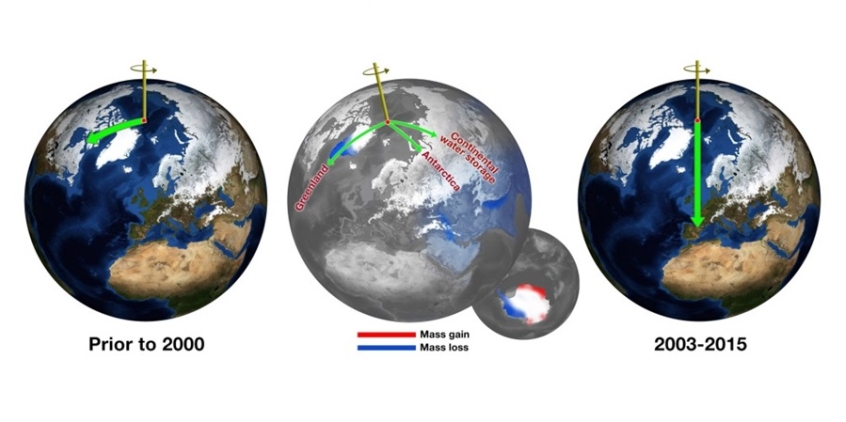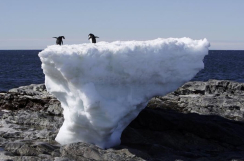
We are already quite aware of how climate change is affecting us here on Earth: long dry spells that cause food shortages, melting polar ice caps that cause sea levels to rise, and unusually powerful storms that wreak havoc on certain parts of the world.
Little did we know, however, that climate change also affects the movement of our planet in space, causing it to wobble on its own axis.
Researchers from the Jet Propulsion Laboratory of the National Aeronautics and Space Administration (NASA) in Pasadena, California recently concluded that droughts and heavy periods of rain brought about by climate change are causing Earth to shake in space.
Study co-author Surendra Adhikari explained that based on her team's observations, the Earth's axis has already experienced a "massive swing" of about 7 inches a year eastward since 2000.
"We are going through this massive global-scale climate change to such a degree that the change in climate has been strong enough to affect the rotation of such a giant planet," Adhikari said in a report on CNBC News.
The NASA researchers also examined another pattern of wobbling that occurs every six to 14 years, which has been puzzling scientists for more than a century.
In their study published on the journal "Science Advances," the scientists were able to establish that when ice sheets formed and melted around the world, the distribution of mass around the planet changed, enough to shift the polar axis.
The study also found out that ice sheets in Greenland and Antarctic are responsible for most of the force pulling and pushing the polar axis.
"Imagine we have a perfect sphere that is rotating on an axis. If you remove a chunk of material from any location of that idealised sphere, then you are perturbing the system, and the axis tends to head toward the location where you lose the mass," Adhikari explained.
Adhikari and co-author Erik Ivins were also able to chart the maximum impact these kinds of changes could have on the movement of the axis. They ultimately found out that the Earth's axis shifts when there are changes in the amount of water on land.
















